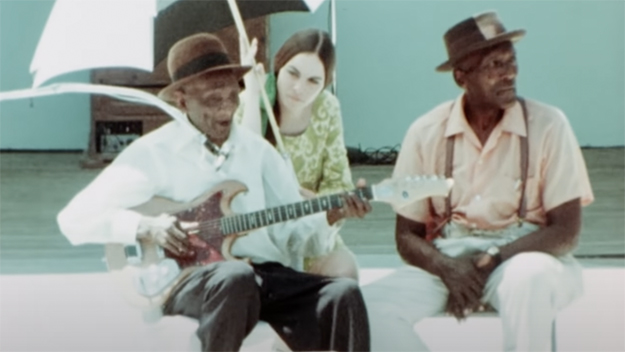Film Comment Recommends: Memphis ’69
This article appeared in the August 12 edition of The Film Comment Letter, our free weekly newsletter featuring original film criticism and writing. Sign up for the Letter here.

Memphis ’69: The 1969 Memphis Country Blues Festival (Joe LaMattina, 2019)
Streaming for free via Fat Possum Records
This raw, no-frills concert documentary consists entirely of footage shot over the course of a three-day outdoor festival in Memphis, Tennessee in June 1969. The lineup was particularly strong, featuring the party soul of local legend Rufus Thomas (who kicks off the show and acts as emcee), the haunting folk-blues of the 106-year-old Nathan Beauregard, and the overwrought psych of The Insect Trust, to name a few. Unfolding in chronological order, the documentary plays more like a compilation album than an attempt to capture or comment on the cultural and political vibrations of the era: each performer gets a single song or two, and then we’re on to the next, the montage intercut with b-roll of bored hippies and drunks lolling in the stands.
In addition to the many magnificent performances (from Mississippi Fred McDowell, Sleepy John Estes, John Fahey, Beauregard, and Thomas, among others), what makes Memphis ’69 compelling is an undercurrent of discord, bubbling throughout the film, between the older “rediscovered” Black artists and the white organizers and headliners. With no talking heads to provide context, one is left to wonder why exactly Thomas, McDowell, Beauregard, and others played to sparse crowds at 11 a.m., while Johnny Winter and the extremely corny white blues-rock trio Moloch played to roaring crowds at night. The morning after Winter’s (surely well-paid) headlining set, a visibly hungover organizer introduces the Salem Harmonizers: “Well, it’s Sunday morning, so we’re gonna listen to some GOSPEL MUSIC.” The Harmonizers deliver, as does McDowell, who wraps up the show with a typically rousing rendition of “Keep Your Lamp Trimmed and Burning.” The tension between these transcendent performances and the complex social relations on display in Memphis ’69 leaves a slightly bitter aftertaste, not entirely unlike the vague regret of a Sunday morning coming down.







